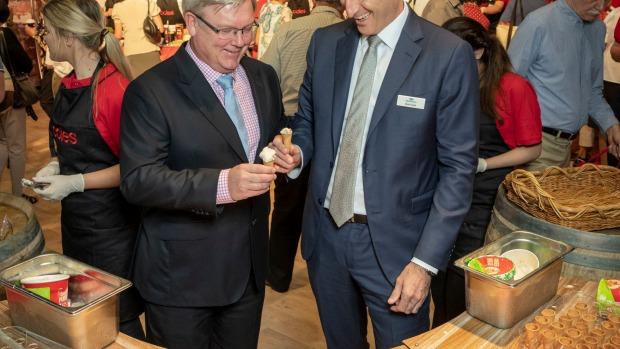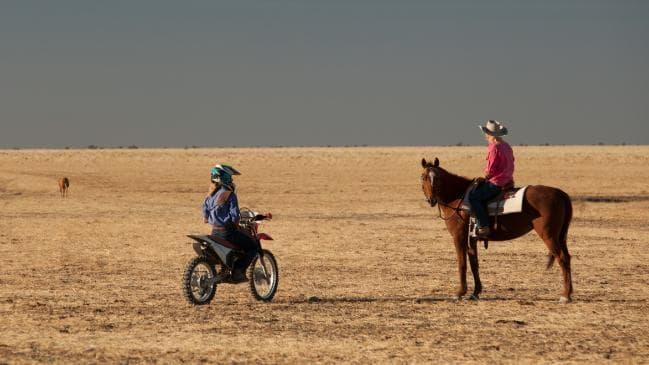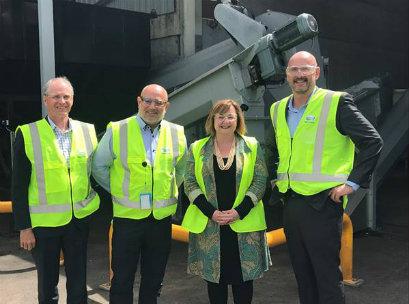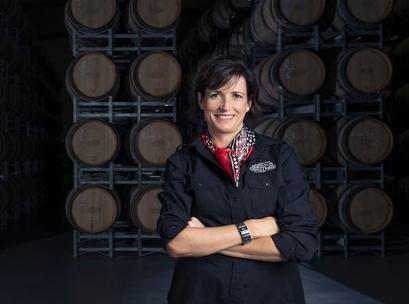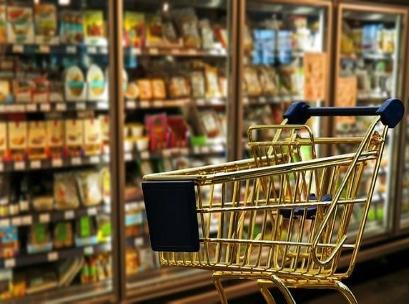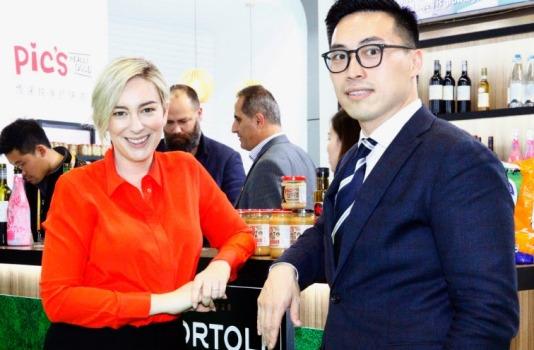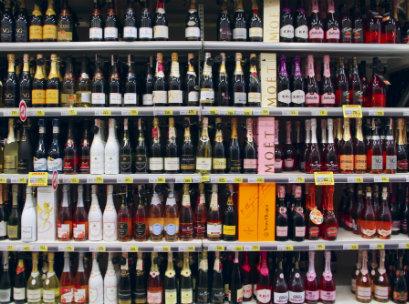
Woolworths is planning to cut back on capital spending, freeing up funds so it can drop prices and reduce household food bills while also returning money to shareholders.
Speaking to media after Woolworths' annual meeting on Wednesday, chairman Gordon Cairns and chief executive Brad Banducci said the supermarket group had been "playing catch-up" on capex in recent years, stepping up investment on store refurbishments and supply chain improvements after a period of under-investment.
However, as it came closer to completing the final phase of the program – rolling out new software in distribution centres – net capex would start to fall and there was scope to invest in prices while returning funds to shareholders.
"We've gone through a period of catch-up," Mr Cairns said. "As we move forward we'd like to see the capex program come back to a more normalised level."
"It's not as if we need to spend the money on capital – we have an effective store replenishment program, we have invested significantly in WooliesX – maybe the time now is to reward shareholders."
Analysts and investors have been expecting competitive pressures in supermarkets to ease after Woolworths' $1 billion investment in price in 2016 and 2017 and following Coles' demerger from Wesfarmers.
However, Mr Banducci suggested Woolworths had no plans to take its foot off the pricing pedal and said Coles' listing "doesn't change anything ... unless they materially alter their strategy".
"There's a lot of pressure out in the community right now – the fuel price has come off somewhat but there's a lot of pressures with interest rates and paying principal on your home [loan]," he said.
"We have to all continue to deliver value so I don't think we're less focused on value."
Mr Cairns, the chairman of Origin Energy, said rising energy costs and subdued wages growth had added to the strain on household budgets.
"Our role is to make sure our products are more affordable for our customers," he said, "so the one thing they don't have to cut back on is their budget on food."
Woolworths is still reviewing capital management options after selling its fuel business to the EG Group for $1.72 billion earlier this month.
"We haven't decided what we're going to do and it will be nice to get the proceeds," Mr Cairns said.
"We have $2.3 billion of franking credits and clearly we want to use up some of those," he said.
"You can reward shareholders in terms of earnings per share and return on capital employed and total shareholder returns and there's a way you can also get franking credits to them – it's just a question of saying where is the balance."
Mr Cairns confirmed Woolworths would review options for Big W once it had returned to profit but would not be drawn on rumours the retailer was looking at selling its 75 per cent stake in pubs and clubs group ALH and its Endeavour Drinks business.
"Once [Big W] is fixed up we've got optionality. Having lost $100 million last year we have some ways to go before it's fixed up," he said.
Mr Banducci told shareholders there were "enormous opportunities" to improve the business this year, while Mr Cairns, who was re-elected at the meeting, used his address to emphasise the retailer's "community credentials".
"At a time when the community is losing trust in big business, I think it is important that Woolworths speaks up, and proudly displays its credentials," he said, citing the removal of single-use plastic bags and reducing carbon emissions by 10 per cent from 2015 levels.
The company is the largest owner of poker machines in the country. Mr Cairns said the company was committed to "harm minimisation" and was making a number of changes to its business following two external reviews.


